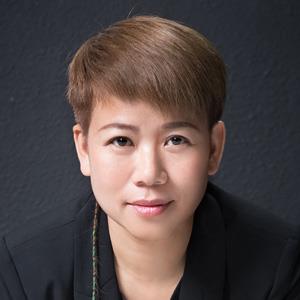
Naomi Chung, Producer
Chung is a member of the China Theatre Association. She graduated from California Institute of the Arts with a MFA in Lighting Design. Since joining the West Kowloon Cultural District in 2011, she has produced a number of events, including the West Kowloon Bamboo Theatre (2012, 2013, 2014), Freespace Fest (2012), the Xiqu Centre Seminar Series, Rising Stars of Cantonese Opera, The Ghost Seller, Experimental Cantonese Opera Farewell My Concubine (New Adaptation) and organised cultural exchange programmes in Mainland China. In 2019, she produced The Reincarnation of Red Plum for the grand opening of the Xiqu Centre. Before joining the West Kowloon Cultural District, Chung was Technical Director of Hong Kong productions at the Expo 2010 Shanghai China, and Head of Programmes & Education with the Hong Kong Chinese Orchestra (2001-2009).

Keith Lai, Playwright, Director, Music Arranger and Actor (as Xiang Yu)
Lai graduated from The City University of Hong Kong with a BA in Chinese and is currently a committee member of the Chinese Artists Association of Hong Kong. A protégé of Cantonese opera masters Man Chin-sui and Poon Sai-lun, Lai also studied under Man Lai-fung and Hon Yan-ming. In 2010, he was recognised with the Most Promising Actor Award (Young Male Opera Role) by the Chinese Artists Association of Hong Kong and RTHK Radio 5. In 2011, he was presented with the Award for Young Artist (Xiqu) by the Hong Kong Arts Development Council and subsequently formed his own troupe to promote a new style of Cantonese opera. As a librettist, he wrote Son of Heaven, Breezy Pavilion and Battle of the Throne. He also adapted two Shakespeare classics, A Midsummer Night’s Dream and Hamlet, into Cantonese operas A Dream in Fantasia and The Arrant Revenge.
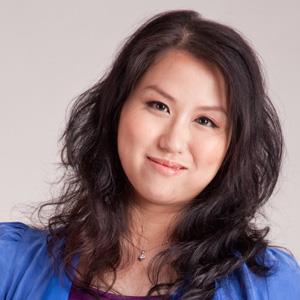
Janet Wong, Playwright, Director, Music Arranger and Actor (as Yuji)
Wong graduated in 2005 from the Advanced Certificate Programme (Cantonese Opera) of The Hong Kong Academy for Performing Arts, where she specialised in dan (female) roles and studied under musician Ng Lut-kwong. Since then she has performed with various Cantonese opera troupes, and formed her own troupe, the Cantonese Opera Theatre. In 2011, Wong became a resident actor of the Hong Kong Young Talent Cantonese Opera Troupe. She won the Outstanding Performance Award at the Rising Stars of Cantonese Opera organised by the West Kowloon Cultural District in 2014, the Award for Young Artist (Xiqu) by the Hong Kong Arts Development Council in 2015, and the Outstanding Young Performer at the 2nd Cantonese Opera Golden Bauhinia Awards in 2021.

Ng Lap-hei, Actor (as Groom/Soldier)
A graduate of The Cantonese Opera Academy of Hong Kong, Ng is currently an actor in the Cantonese Opera Young Talent Showcase at the Yau Ma Tei Theatre. He studied under Wong Yee-man, Yeung Ming, Zhou Zhenbang, He Jiayao, Tsai Win-wei and Guan Shizhen, and was recognised as the winner of the Cantonese Opera Excerpt Category in the Lim Por Yen Cup Cantonese Opera Competition and the Youth Category in the Hong Kong Youth Cultural and Arts Competition (Cantonese Opera) in 2011. In 2020, he won the Award for Young Artist (Xiqu) by the Hong Kong Arts Development Council. His recent performances include Trapped in Calabash Valley, Insulting Zhou Yu Thrice and Chasing after Han Xin.

Rae Wu, Technical Director
Wu joined the West Kowloon Cultural District in 2013 as Senior Manager of Technical and Productions, Performing Arts and participated in the design of the Xiqu Centre, Art Park and Freespace. Graduated in Theatre Sound Design and Music Recording from The Hong Kong Academy for Performing Arts, Wu worked variously as Senior Production Officer (Audio) for the Hong Kong Cultural Centre, Technical Manager for Ocean Park Hong Kong, and Production Manager for Hong Kong Disneyland. He has also worked as technology designer, technical coordinator, and technical director for various stage productions and concerts.

Wong Yat-kwan, Set Design
Wong graduated from The Hong Kong Academy for Performing Arts (HKAPA) and Royal Welsh College of Music & Drama. For the past decade, he has been working as a freelance theatre designer for Edward Lam Dance Theatre, Hong Kong Repertory Theatre and Hong Kong Arts Festival. In 2009, Wong worked as the chief designer of the boutique hotel design project, 1881 Hullet House. In 2011-2012, he taught at the Royal Welsh College of Music & Drama. He was an Artist-in-Residence at HKAPA in 2014, and is currently the lecturer of Theatre Design of its School of Theatre and Entertainment Arts. His recent productions include Why We Chat by Edward Lam Dance Theatre, Dust and Dawn by HKAPA, The Impossible Trial – a musical co-presented by the West Kowloon Cultural District and Hong Kong Repertory Theatre.
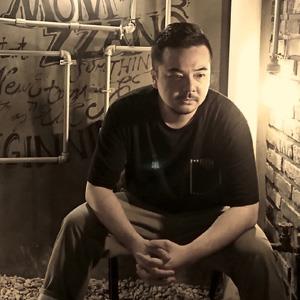
Leo Siu, Lighting Design
Siu graduated from The Hong Kong Academy for Performing Arts (HKAPA) with a Bachelor’s degree in Stage Lighting Design. As a student, he participated in academic exchange programmes in China (Beijing and Shanghai) and the UK. He is currently a freelance lighting designer, and has worked on a diverse range of productions including Experimental Cantonese Opera The Imperial Decree (Preview) and Wenguang Explores the Valley by the Xiqu Centre of West Kowloon Cultural District, La Cage aux Folles by the Hong Kong Repertory Theatre, Offline Dreamer by iStage, Danz Up 2.0 by the Hong Kong Arts Festival, Pippin by HKAPA, Tuesdays with Morrie by Chung Ying Theatre Company, and The Goat or, Who is Sylvia? by We Draman Group.
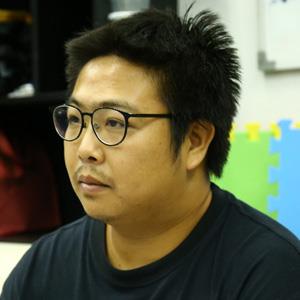
Wan San-hong, Sound Design
Wan, co-founder of Freelancer Production Company, graduated with a Bachelor’s degree from The Hong Kong Academy for Performing Arts (HKAPA), majoring in Theatre Sound Design and Music Recording. For The Ravages of Time 1: Heroes, Wan was awarded Best Sound Design at the 28th Hong Kong Drama Awards. He is currently a freelance theatre practitioner and participates in the productions of Radix Troupe, Cinematic Theatre, Chung Ying Theatre Company, Hong Kong Dance Company, West Kowloon Cultural District, Beamates, Actors’ Square, among others.
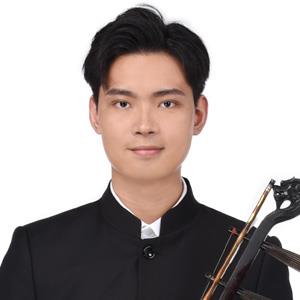
Mao Yijun, Ensemble Leader
Mao began learning gaohu as a child, and entered the Guangdong Cantonese Opera School at the age of 12, studying under Chen Zhiyi. In 2021, he graduated from the School of Chinese Opera at The Hong Kong Academy for Performing Arts, where he studied gaohu and instrumental accompaniment under Ng Lut-kwong, Luo Qinger and Lei Yeying, and gaohu techniques and Cantonese music performance under Yu Qiwei. During his studies, he was awarded several grants, including a Fredric Mao Scholarship and a Lam Kar Sing Foundation Scholarship. Past performances include Pavilion of a Hundred Flowers commissioned by the Hong Kong Arts Festival and Floral Princess by Utopia Cantonese Opera Workshop.
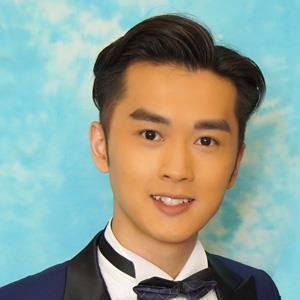
Chan Ting-pong, Percussion Ensemble Leader
Chan joined the Barwo Young Cantonese Opera Troupe, Kim Sum Cantonese Opera and Kam Yuk Tong Cantonese Opera Troupe to learn stylised movement and posture. He further studied the vocal style with Tong Kin-woon, and percussion with Kong Sing at The Cantonese Opera Academy of Hong Kong. Chan then worked as a percussion ensemble leader for Cantonese opera performances, including the Experimental Cantonese Opera Farewell My Concubine (New Adaptation) and Wenguang Explores the Valley, to critical acclaim. He has won awards in Cantonese opera competitions, and recently he has been adapting different plays to Cantonese operas. In 2021, he won the Award for Young Artist (Xiqu) presented by the Hong Kong Arts Development Council.

West Kowloon Cultural District
The West Kowloon Cultural District is one of the largest cultural projects in the world. Its vision is to create a vibrant new cultural quarter for Hong Kong on 40 hectares of reclaimed land located alongside Victoria Harbour. With a varied mix of theatres, performance spaces, and museums, the West Kowloon Cultural District produces and hosts world-class exhibitions, performances and cultural events, providing 23 hectares of public open space, including a two-kilometre waterfront promenade.

Xiqu Centre
The Xiqu Centre is located on the eastern edge of the West Kowloon Cultural District. Its mission is to preserve, promote and develop the art of Chinese traditional theatre, to nurture the local form of Cantonese opera and to promote other forms of xiqu. To advance the legacies and traditions of Chinese traditional theatre, the Xiqu Centre supports artists to create new works and helps nurture a new generation of local artists. Through performances, creation, education, research and exchange, it aims to expand the audience base and create a new platform for the contemporary development of the art form.